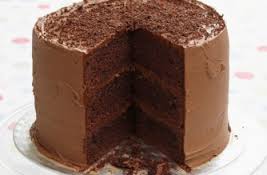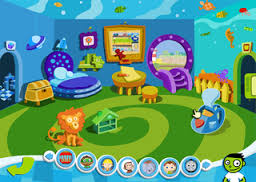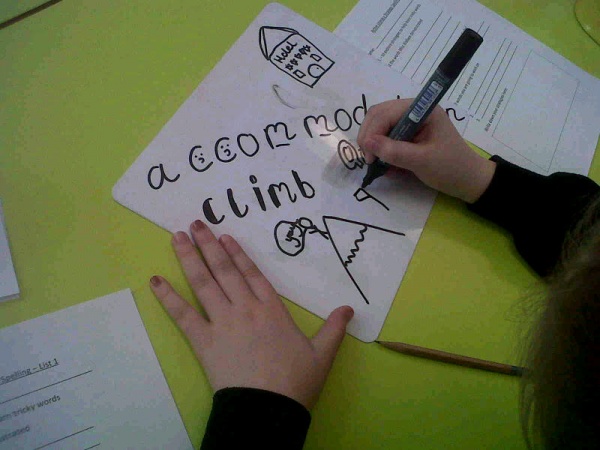
Education Scotland’s website has super advice on how to support your child at home with reading. There are videos aimed at early years, primary and secondary.
For further information, please visit their website.
Tag: reading
What happens in Active Literacy Reading? Sharing Learning with Families
 Sharon Wallace, Curriculum Support Officer, Services and School Improvement Team has developed a range of materials to share with parents and carers about what happens in their children’s classrooms.
Sharon Wallace, Curriculum Support Officer, Services and School Improvement Team has developed a range of materials to share with parents and carers about what happens in their children’s classrooms.
Mums, grans, aunties, big sisters and little sisters from St. Patricks R.C.P.S. in Denny shared one of these experiences at their ‘Girls Night In’.
Sharon demonstrated how teachers use a range of texts (in this case, Michael Rosen’s ‘Chocolate Cake’ poem) to develop the six reading comprehension strategies.
Firstly, the ‘big’ girls had a competition to see how many types of chocolate bars and how many characters they could spot in the ‘Charlie and the Chocolate Factory’ film trailer. This was a close competition! Sharon then ascertained their prior knowledge and experience of ‘chocolate’ by asking some open questions and asking the girls to put the word ‘chocolate’ into a sentence.
A recital of Michael Rosen’s ‘Chocolate Cake’ poem was well received with lots of giggles and laughter. The girls then drew ‘visualisers’ demonstrating their knowledge of the main ideas in the poem. One girl was able to make excellent comparisons between Bruce Bogtrotter (Matilda) and the little boy in the poem – very impressive!
The girls then eloquently answered a range of questions relating to inference. When asked what the little boy should have for his play piece after sneaking up in the middle of the night and demolishing a whole chocolate cake, the girls replied “Nothing!” or “Well, maybe a piece of fruit!”
The session concluded with the girls all trying out a sample of chocolate cake, whilst at the same time offering some fantastic adjectives to describe the smell, taste and whole experience.
All of the girls left the workshop with big smiles on their faces (and maybe a few sticky, icky fingers!).
Feedback from this session included:
I liked the poem about the little boy who liked the chocolate cake.
Direct quote: I like the poam wif a litel boy wot likt choclt caik. (Primary 1)
It was very good – I loved the story of the cake – thank you (Sophie P3)
We enjoyed hearing the story of the chocolate cake – we had lots of laughs during the session.
Good idea to introduce Literacy activities this time!
Chocolate cake workshop was worthwhile – something a bit different!
We wish we had visited the chocolate cake workshop – heard lots of good things about it.
More sessions like this are coming soon to a school near you! For further information, please contact Sharon.wallace@falkirk.gov.uk
I Like Big Books!
 Larbert High School has highlighted the value of reading in this parody you tube video entitled ‘I like big books’.
Larbert High School has highlighted the value of reading in this parody you tube video entitled ‘I like big books’.
The video can be viewed by clicking on this link.
It was produced as part of Literacy Week 2013.
Active Literacy is used in all Falkirk establishments and aims to develop six key reading comprehension skills which are:
- Prior knowledge and understanding
- Metalinguistics
- Visualisation
- Inference
- Main ideas
- Summarising and paraphrasing.
All six comprehension skills are explicitly modelled and taught and pupils then apply these skills across a wide range of texts across a variety of genres.
Reading Heroes
Do you know a Reading Hero?
What does a reading hero look like?
What does a reading hero sound like?
Have you seen a reading hero in your school?
Where else have you seen reading heroes?
Click on this link to see three reading heroes in action on the Scottish Book Trust:
http://www.scottishbooktrust.com/reading/book-week-scotland/reading-heroes
Book Lists
Fun with Reading
 The Scottish Book Trust offers support and advice for reading on their website.
The Scottish Book Trust offers support and advice for reading on their website.
Help your child develop a lifelong love of books with these fun videos. Find adorable rhymes to sing to your baby or child, SCBA-nominated authors reading from their books, Authors Live events and more!
Further information can be found at http://www.scottishbooktrust.com/bookbug/sharing-books-rhymes/videos
 The play@home programme provides all families in Scotland with three books covering three stages from birth to 5.
The play@home programme provides all families in Scotland with three books covering three stages from birth to 5.
For more information, please visit Education Scotland website.
Practical Solutions for Early Intervention
 This document ‘Practical Solutions for Early Intervention’ can be found in all Falkirk Council early level establishments.
This document ‘Practical Solutions for Early Intervention’ can be found in all Falkirk Council early level establishments.
It contains practical examples of learning experiences aimed at talking and listening, reading and writing.
This is a valuable document and embraces the aims of Falkirk Council’s Literacy Strategy.
The scanned document can be accessed from here: Practical Solutions for Early Intervention.
For more information, please contact the Curriculum Support Team at Camelon Education Centre.
Developing Reading Skills Using Blooms
Mary Jalland at Westquarter Primary School attended a school based CAT session on reading where Sharon Wallace, Curriculum Support Officer for Falkirk Council, talked about using Blooms fans with pupils to develop deeper understanding of 'texts'.
Mary went back to class and tried this out using 'The Gruffalo' as a text with some stunning results.
[kml_flashembed movie="http://www.youtube.com/v/i9nJgX9SYlY" width="425" height="344" allowfullscreen="true" fvars="fs=1" /]
Active Literacy – FAQs
How can I support my child with their active literacy homework?
- You could attend an active literacy parent workshop which are held regularly at different primary schools. There are also parent leaflets which contain lots of helpful information and links through to useful websites to support literacy at home. Further information can be found at: https://blogs.glowscotland.org.uk/fa/CurriculumSupport/2013/05/02/using-reciprocal-teaching-to-engage-parents-in-active-literacy/
What is a phoneme?
- A letter or group of letters that make a single sound, for example, ‘oi’ or ‘a’.
What are Elkonin boxes?
- These are used to teach phonemic awareness. Pupils listen out for the individual sounds and mark where they hear them in boxes.
What is diacritical marking?
- Diacritical marking is the use of symbols to mark single sounds/ phonemes (e.g. b, p), joined phonemes (e.g. sh, ch) and split phonemes (magic e words). It is a spelling strategy which is used as part of the ‘Active Literacy’ approach in schools. It is usually taught at Primary 4 and 5, though can be continued and developed in the upper stages. There are three parts to the code: a single dot which represents a single phoneme, a line which represents a joined phoneme and an arch which represents a split phoneme.
What is Reciprocal Teaching?
- This is a strategy used during Active Learning where children will work together to support and challenge each other. They may adopt roles such as ‘word reader’ or ‘word writer’.
Which spelling strategies are taught at school and how I can support my child with this?
- There are many spelling strategies taught in school. Some of the ‘fun’ spelling tasks which are used to learn common or tricky words include: Rainbow writing, fancy writing, spell-er-cise, bubble writing, big and little writing, type-em-up, rhyming words, newspaper letters and triangle spelling. Other strategies taught are: syllabification, mnemonics, words within words, word shape, spelling rules and compound words.







